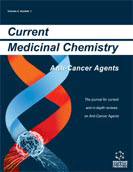
Abstract
Telomerase is a target for anticancer research because telomerase activity is closely correlated with malignancy. Inhibition of telomerase activity should increase telomere shortening, which destabilizes chromosomes, thus leading to cellular senescence and death. Extensive investigations have addressed the molecular mechanisms of telomerase activation in cancers. Based on results from these studies, various attempts have been made to inhibit telomerase activity using molecular techniques in cancer cells. Antisense oligonucleotides directed to human telomerase RNA, the dominant negative form of human telomerase reverse transcriptase (hTERT), hammerhead ribozymes that cut hTR and agents that interact with quadruplex DNA represent potential telomerase inhibitors. This review includes a summary of recent attempts to inhibit telomerase activity in cancer cells and a discussion of how these tools can be applied to cancer therapy, especially in combination with established anti-cancer agents.
Keywords: Telomerase, Cancer Therapy, hTERT, Antisense Strategies, G-Quadruplex
 1
1


















